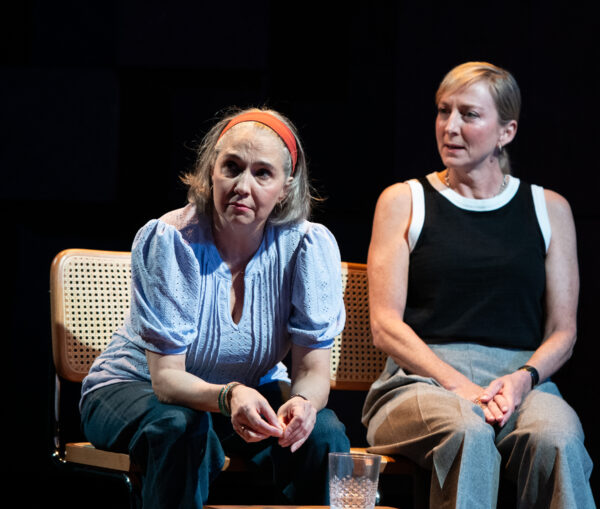A POIGNANT LOOK AT FEMALE FRIENDSHIP
What are the makings of female friendships? What holds them together and what causes them to shift off course? These are just two of the philosophical questions raised by David Auburn’s latest masterpiece and recent Broadway hit Summer, 1976, currently at Studio Theater. Known best for his heady play Proof, for which he won a 2001 Pulitzer Prize, about a young woman struggling with genius and possible mental illness, this memory play again captures the feminine perspective in thoughtful and provocative ways.
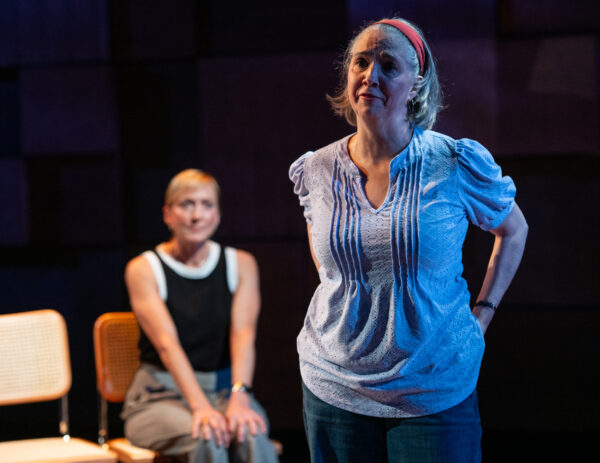
Thespian powerhouses Holly Twyford and Kate Eastwood Norris – who have worked together on DC-area stages numerous times – are delightfully true-to-life as Alice and Diana, respectively. They embark on an unlikely union – Alice is a seemingly laid-back housewife with hippie tendencies while Diana is a single mom and meticulous artist, whose viewpoint is often unabashedly critical. They meet during the summer of 1976 in Columbus, Ohio through their young daughters, as many women do, and build a sometimes strong, sometimes tenuous relationship that explores both characters’ dreams and disappointments.
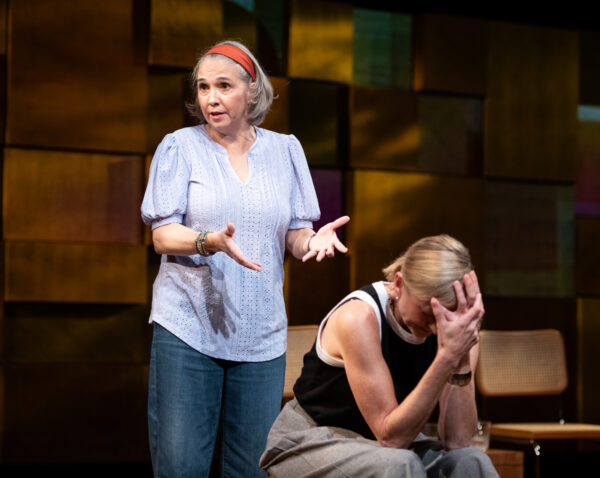
Although their children and the men in their lives are referenced frequently, the two women are the only ones on stage. The effect is the audience gets a razor-focused view of their complicated relationship. This birds-eye stance carries intensity and feels a bit voyeuristic.
Lee Savage’s simple set design – two chairs, accompanying block end tables, and a backdrop of wooden squares – forces our attention solely on the women with no distractions. In an unexpected twist, Diana at times conveniently slips into the role of Doug, Alice’s husband, to flesh out a scene or two. This is done expertly and effectively.
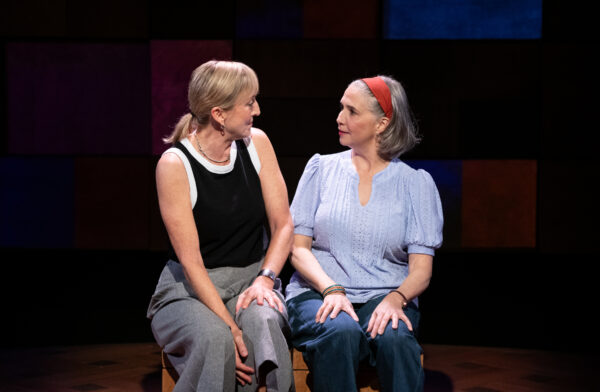
Add the nostalgia of the 70s (including tracks from Carole King, Fleetwood Mac, and Peter Frampton that play before the opening curtain) and humor-infused monologues, and Auburn has found the perfect combination of sweet and sour to keep us engaged for the full 90-minutes.
The women’s daughters – Alice’s Holly and Diana’s Gretchen – immediately become besties, but that’s not the case with the more judgmental adults (“I didn’t like her child, actually” Diana confesses). Diana is put off by the fact that Holly has an unseemly perpetual runny nose and Alice despises (maybe envies) Diana’s anal-retentiveness. Diana describes Alice as a “sleepy-eyed little hippie with her shorts and coconut oil” and Alice bluntly tells the audience, “I sort of immediately hated her.” They only start to bond over a joint that Alice produces (she bought it from the male student painting her house), both women toke, get a fierce case of the munchies, and voila, a kinship is formed.
Director Vivienne Benesch beautifully carries us through these two fiercely independent women’s lives during that fateful bicentennial summer when through their bond they discover what is lurking beneath the surface of their personalities. Both organically change and grow throughout the play in ways that can strongly be attributed to their friendship in which they challenge each other to shed their exterior personas and face their flaws.
Along with the internal changes happening with the women, Projection Designer Stefania Bulbarella and Lighting Designer Jesse Belsky ingeniously change the backdrop to resemble shifting artwork in the vein of Paul Klee. Alice says that Diana’s (mostly unfinished) artwork resembles the work of Klee and the two women unexpectedly run into each other again in 2003 at a Klee exhibit in New York City.
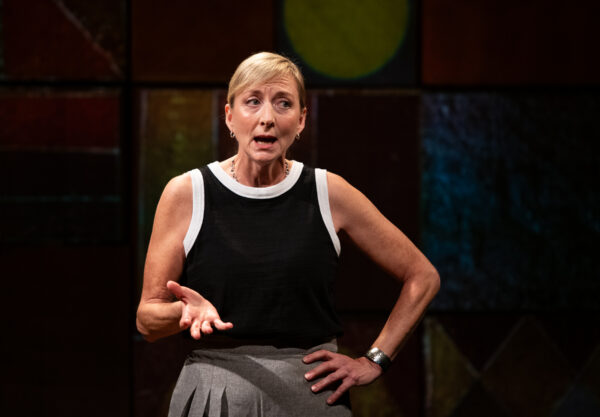
The 1970s was a time of burgeoning feminism, and this play’s plot is reminiscent of that feverish and questioning era. It’s unusual to stage a production with only middle-aged women, and I tip my hat to Auburn for his daring creation.
If you’re intrigued by psychological stories with female characters, this play is an obvious choice.
photos by Margot Schulman
Summer, 1976
Studio Theatre
1501 14th Street NW in Washington, DC
90 minutes with no intermission
ends on January 5, 2025
for tickets ($40-$95), visit Studio Theatre

